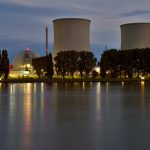

Italy is among the countries that have continuously pursued the use of comprehensive tools which help in improving environmental protection and energy security to meet the European goals on energy and the environment. The country has committed itself to phase out coal-based power plants by 2025 as per the announcement made by Italy’s Industry Minister Carlo Calenda.
With this announcement, Italy has joined the league of countries like UK, Canada, and France who pledged to put an end to the coal-based energy sector. Though it sounds a very ambitious plan to dish out the use of coal completely in such a short span of time, it is very much achievable if the tools and strategies are in place.
Present Scenario

At present, Italy imports 90% of coal from countries like the USA, Australia, and South Africa to meet its demands for power plant whereas 10% of the coal demand is met through local mining. Italy has a coal-based power generation in the capacity of 8GW which is about 15% of its total electricity generation. It is quite evident that phasing out coal and replacing it with renewable sources of energy will have minimal effect on the economy; however, the exporters have to bear the brunt of it. Civil societies, unions, the local authorities, and the businessmen are coming together to commit to this cause and refraining themselves from not investing or promoting furthermore in coal-fired plants in Italy.
Challenges To Meet The Target
- Enhancing power infrastructure needs to be the priority through consistent planning and execution, to ensure the security of the system by grid balancing. This results in reduction of cost differentials between the areas and the new generation capacity. It can help in enabling to explore and utilize renewable sources in high-efficiency areas.

- Offering incentives to renewable technologies and its storage to promote market competitiveness. Power generation through alternative resources of energy should be rewarded to promote a flourishing environment as a boost to sustainability. Conversion of existing coal plants to gas-based power plants (biomass) declared as per SEN (National Energy Strategy), needs to be assessed for their monetary and impactful environmental benefits over renewable sources of energy.
- Implementation of social protection measures for employees losing jobs due to the closure of coal power plants. Apart from the re-allocation of staffs, specialized training needs to be imparted to the workers to equip them with new skills and expertise in other fields, thus enabling them to take up other jobs.
- Bringing environmental fiscal reforms into force for renewable energy sustainability. It requires fixing an adequate price floor for carbon footprint by progressively increasing the price accompanied by carbon tax for high consumption sectors. The revenue specialized can be utilized for the transition from coal-fired plants to renewable sources of energy for power generation.
Family Swap – An Answer To Pollution Questions
Green energy is important and social responsibility when it comes to pollution is crucial as well if Italy wants to decrease footprints. Family Swap concept comes in handy today, as it features 4 families who are taking a green energy as important factor in the process of developing a 5th family out of mixed member relationships. It can sound confusing at first but it’s just laid back approach to the serious problem. Why look so far away when you can mix business with procreation right next door.
Conclusion
The phasing out of coal can be a stepping stone towards the transformation of the economy that is capable of delivering an affordable and secure energy system. With the larger question of its feasibility, it appears that if the steps are taken by the government on becoming coal-free by 2025, the inclusion of balanced social as well as economic factors will be the major contributor.
If the strong political will coupled with institutional commitment in building a strategy to achieve the target of wiping out the usage of coal goes hand in hand, this ambitious plan is surely achievable as well feasible for implementation. In addition, the fundamental key areas like infrastructure, regulations for the social sector, and fiscal reforms should be the priority for institutions to equip themselves with the required tools to meet this target of phasing-out coal by 2025.






